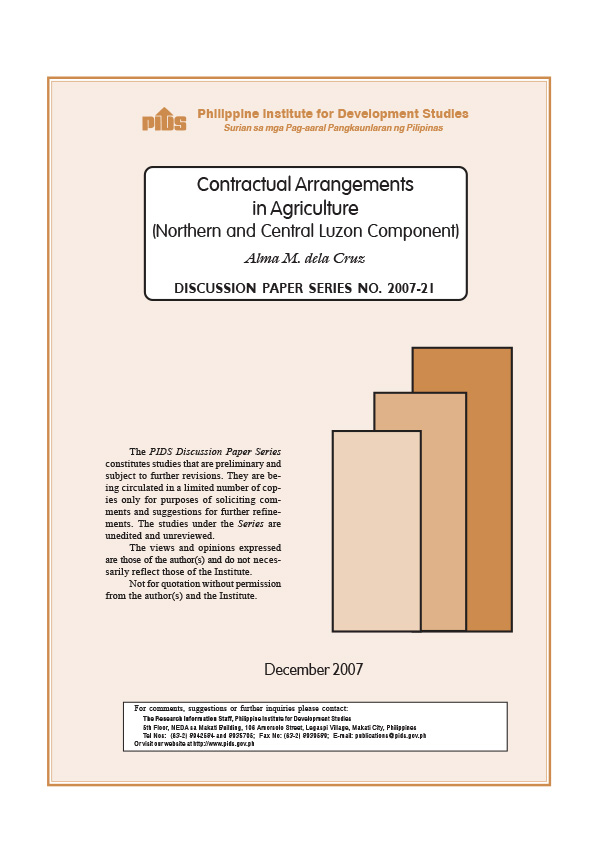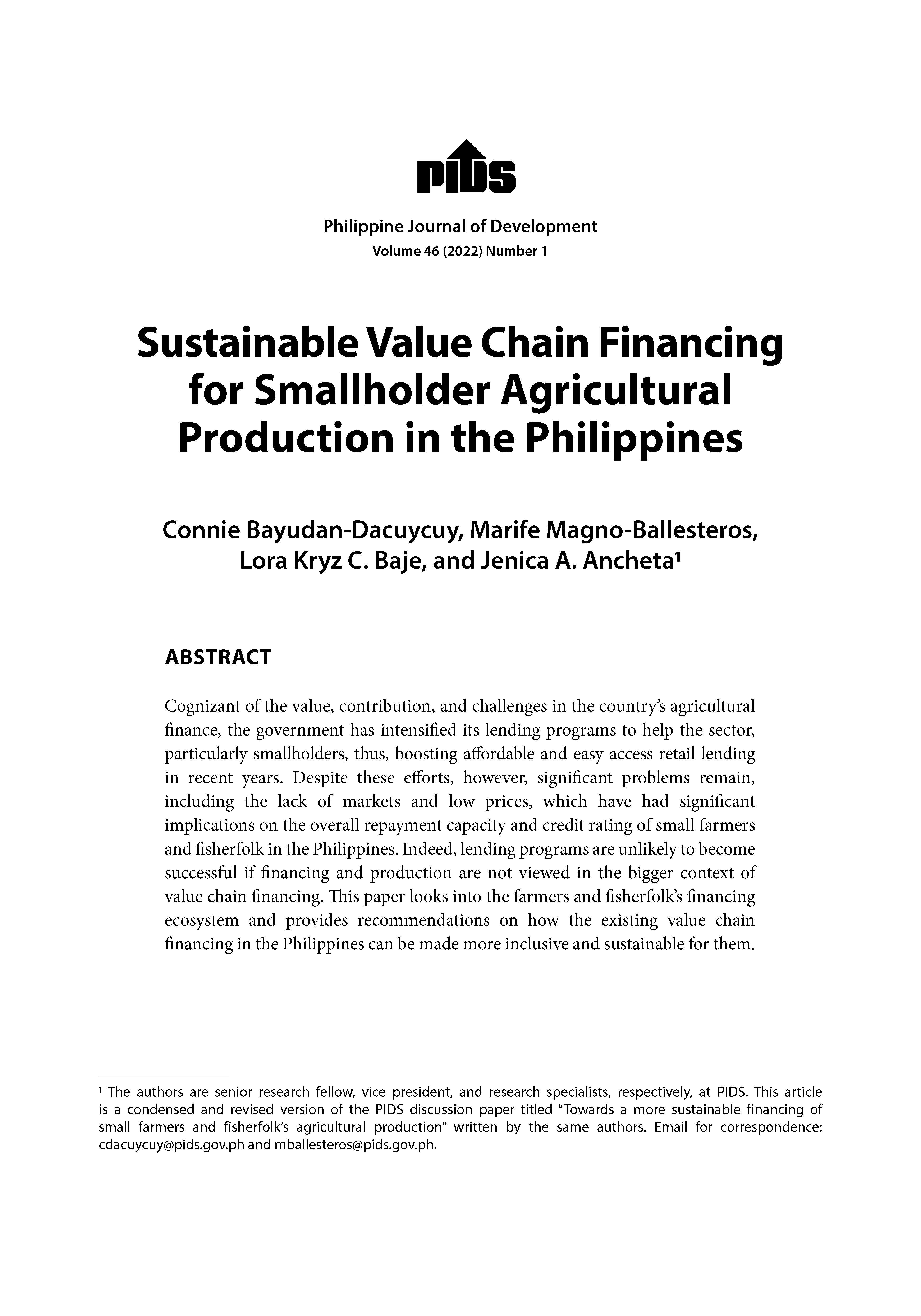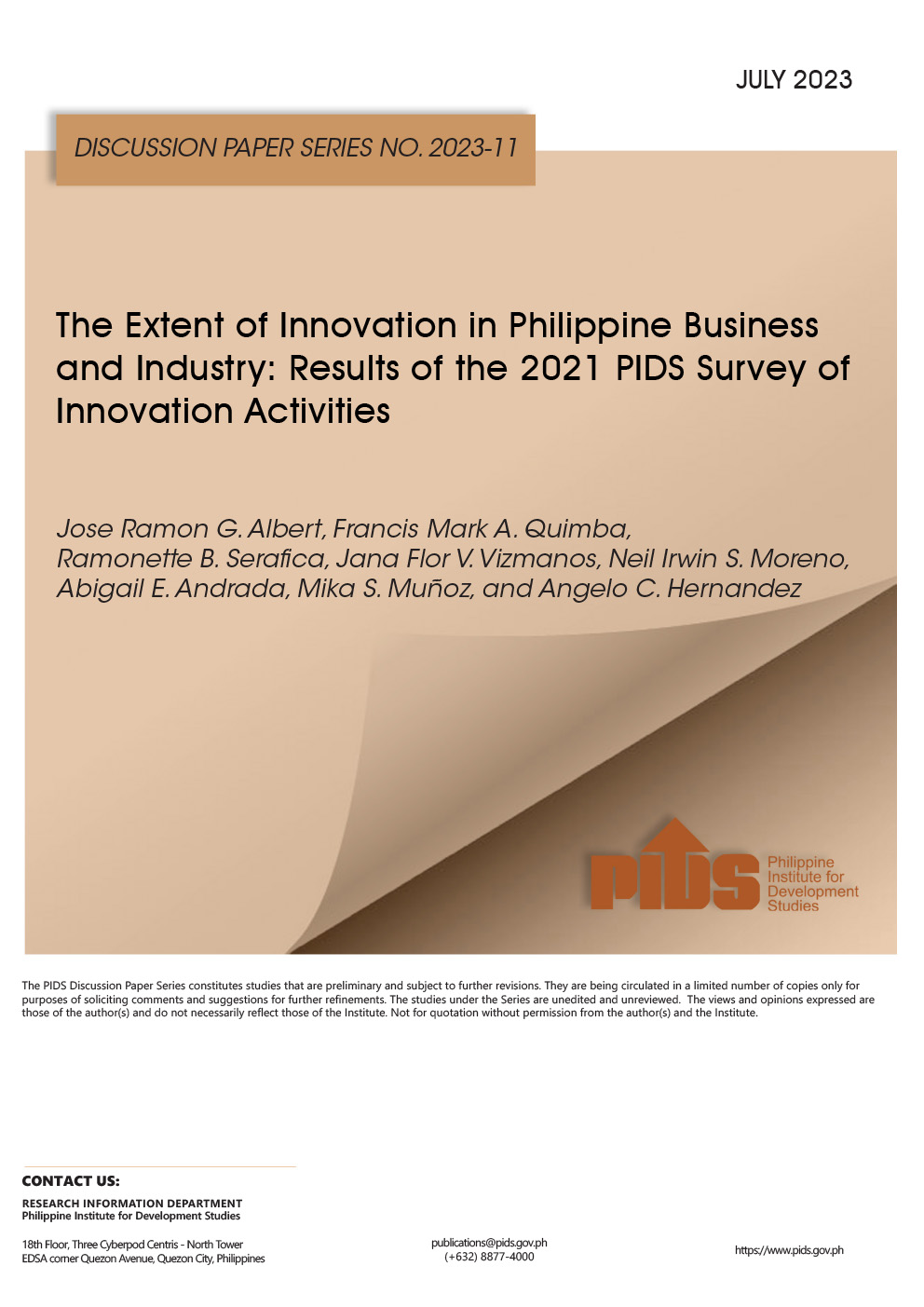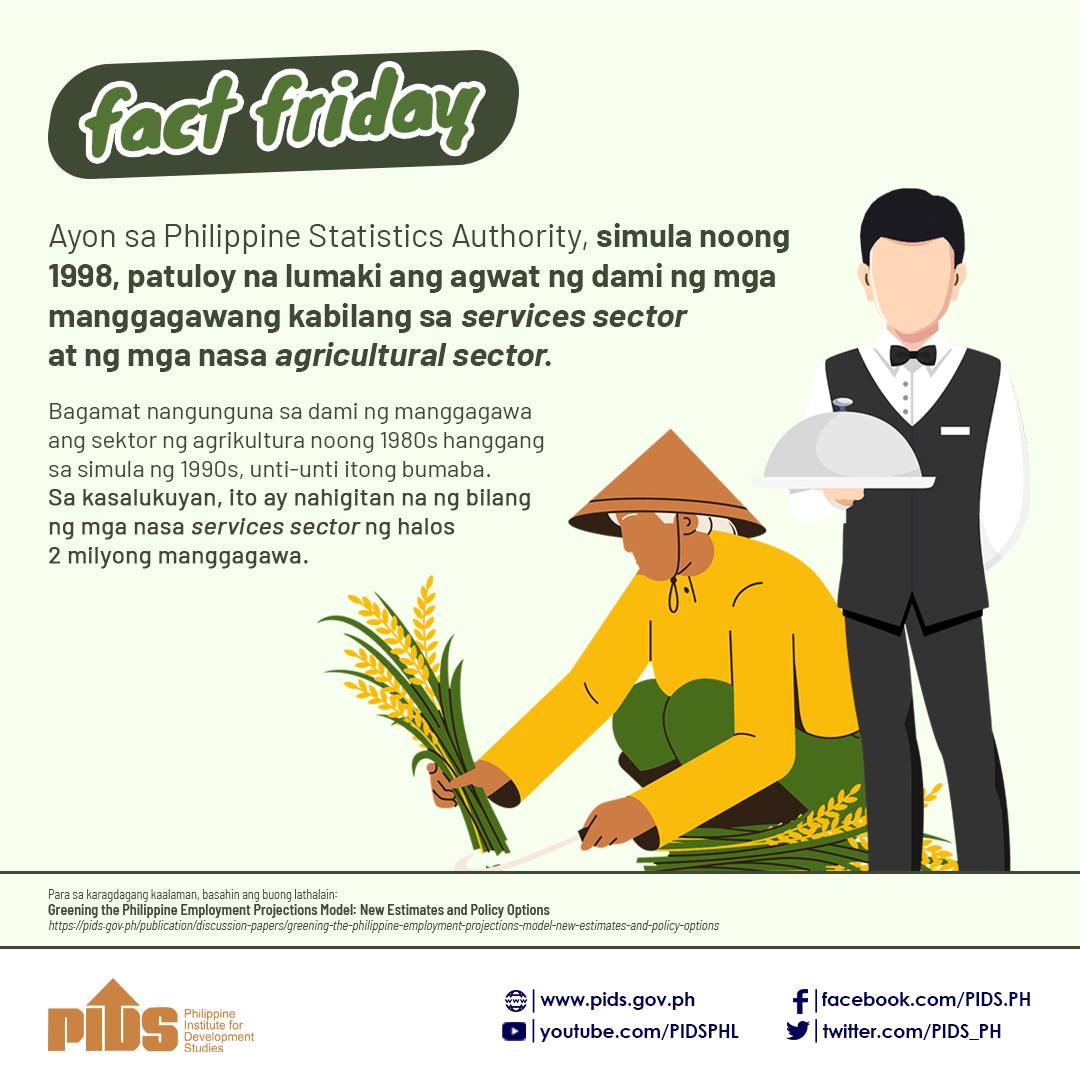This study aims to characterize and analyze the various contractual arrangements in selected agricultural commodities in parts of Central and Northern Luzon. Specifically, the objectives are to: i) characterize the nature, process, and degree of various agricultural contracts involved in the production and marketing of mangoes, hogs, rice, and selected vegetables; and ii) analyze the implications of the various contracting arrangements in these commodities in terms of efficiency and equity. The nature, process, and degree of the different contracting systems in the four selected agricultural commodities have been diverse. In most cases, however, the different contracts were outcomes of the farmers’ need to adjust to the different production and market conditions surrounding the agricultural sector. The pervasiveness of sharecropping in many agricultural crops such as mango, rice, and vegetables underscore the farmers’ difficulty in raising capital due to missing credit and insurance markets. The associated risks, seasonality, and specialized nature of agricultural production have likewise complicated the production processes and patterns of contracts in these commodities. Access to credit and marketing institutions and functioning of insurance markets are essential for the transformation of subsistence-oriented asset-poor farmers.













